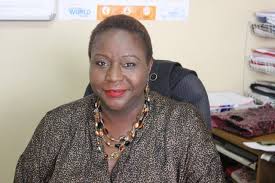By Byron Mutingwende
Women have described efforts towards the establishment of a gender sensitive fiscal policy measures espoused in the 2017 National Budget as piecemeal and have called a mechanism to legislate gender budgeting.
Speaking at a dialogue meeting organised with stakeholders to discuss the extent to which government has embraced gender-responsive budgeting in the 2017 National Budget, Pamela Mhlanga, the Director of Zimbabwe Women’s Resource Centre and Network (ZWRCN) said that there was a need to legislate gender budgeting to ensure compliance within all the line ministries.
“The ministries should prioritise issues that promote gender equity and balance but more often than not they don’t do so. Women’s issues are often taken as a last priority and to ensure compliance there is need for the establishment of a legislative framework,” Mhlanga said.
Arina Manyanya, the Acting Director in the Ministry of Finance and Economic Development said that government is fully committed towards achieving gender equality , in line with the constitutional, international and regional gender equality obligations, with a special focus on the advancement of women and children’s rights.
“In 2007, Government embraced the Gender Responsive Budget (GRB) as a tool and strategy to promote and accelerate gender mainstreaming in all sectors of the economy through the budget process,” Manyanya said.
To facilitate gender mainstreaming through budget process, Manyanya said that Government issued gender sensitive Budget Call Circulars and undertook capacity building in GRB for both Government officials and Parliamentarians . In addition to that, it also issued Gender Budgeting Guidelines to assist Government institutions to prepare gender sensitive budget proposals.
But Phides Mazhawidza, from the Women Farmers, Land and Agriculture Trust said such proposals were just on paper and needed to be implemented on the ground.
“The Budget comes as the government is implementing the Command Agriculture Programme. Farming is dominated by men who have established viable farming enterprises but the project is coming to the communities without any parameters for gender equity in terms of allocation of inputs. This is despite the fact that there are emerging women in mainstream agriculture,” Mazhawidza said.
The Chief Executive Officer of the Women’s Action Group, Ednah Masiyiwa said there was need for women to push for a quota system at operational level when it comes to the distribution of resources between men and women.
The Director of the Humanitarian Information Facilitation Centre, Virginia Muwanigwa bemoaned the fact that in the 2017, tax relief had been directed to areas where women were not fully represented. She castigated the 40% import duty on paraffin which comes as there is no specific figure allocated towards the implementation and use of renewable energy and rural electrification to address the access to energy challenges faced by women.
Despite the above challenges, there are revenue measures set to benefit women outlined in the 2017 National Budget.
These include the removal of capital gains tax on donated houses as well as the provision of a waiver on SMEs to account for output tax from the deemed date of qualification for registration in order to facilitate registration of SMEs to transact with private and public entities as corporate suppliers within the value chain.
“We also pay tribute to VAT exemption on services offered by innovative banking service providers other than the traditional financial institutions. The intervention promotes the financial inclusion of disadvantage groups. On the other hand, the introduction of a Movable Property Security Bill permits the creation of Collateral Registry to be used by SMEs to access credit finance,” said Manyanya.
The allocation of US$1.1 million for the Gender Commission to monitor gender mainstreaming in both the public and private sectors is a welcome development.
The 2017 National Budget made some considerable strides in attempting to be generally gender responsive despite the economic challenges that the economy is facing.
